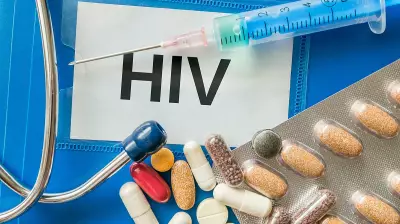
In an era where mental health discussions flood social media, a wave of misinformation about antidepressants is causing concern among medical professionals. While influencers tout these medications as miracle solutions, others like Health Secretary Robert F. Kennedy Jr. have made alarming claims linking them to addiction and violence. So what is the reality behind these commonly prescribed drugs?
Addressing the Addiction Myth
Doctors are pushing back strongly against claims that antidepressants are addictive. Antidepressants show none of the telltale signs of addictive substances, according to mental health experts. Dr. Aniruddha Deka, an assistant professor of psychiatry at Rush University in Chicago, explains that addiction involves craving a substance, feeling intoxicated, and compulsively using it despite negative consequences.
Dr. Eric Lenze, head of the psychiatry department at Washington University School of Medicine in St. Louis, reinforces this view: "I've never in my career seen someone compulsively seek out antidepressants." What people often mistake for addiction are actually withdrawal symptoms that can occur when stopping medication.
Understanding Withdrawal Realities
When discontinuing antidepressants, some people experience withdrawal symptoms as their body adjusts to the absence of medication. These can include flulike symptoms, dizziness, fatigue, anxiety, insomnia, agitation, and the unusual sensation of ear zaps - described as electrical zaps behind one's ear.
Recent research analyzing data from more than 20,000 patients across nearly 80 studies provides clarity on how common these symptoms actually are. The study concluded that approximately 15% of people experienced withdrawal symptoms when discontinuing an antidepressant, with only 3% reporting severe symptoms.
"Addiction is a very different thing than simply the fact that if you stop taking the medication you may have some withdrawal symptoms or you might relapse," emphasizes Dr. Lenze.
Proper Duration and Usage Guidelines
The appropriate length of antidepressant treatment depends significantly on individual circumstances. For someone experiencing their first depressive episode, doctors typically recommend tapering off medication after six to 12 months from remission of symptoms.
Dr. Sanjay Mathew, president-elect of the Anxiety and Depression Association of America, notes: "We don't necessarily want people to be on the drugs indefinitely if they don't need it."
However, depression often follows a recurring pattern. The risk of recurrence jumps from about 50% after one episode to 70% after two or more episodes, and 90% after three episodes. Dr. Deka explains that people with recurrent depression or severe cases involving hospitalization or suicidal thoughts may need to stay on medication longer, potentially more than two years depending on the situation.
Dr. Lenze compares depression management to hypertension treatment: "If you take blood-pressure medicine and your blood pressure normalizes then that's a sign that the medication is working. But if you stop it, your blood pressure will go back up."
Side Effects and Violence Concerns
Common short-term side effects of SSRIs include gastrointestinal issues like nausea and feelings of anxiety. Longer-term side effects can involve sexual dysfunction and weight changes. Medications often used with antidepressants, such as Abilify and Vraylar, may cause metabolic side effects including changes in cholesterol and blood-sugar levels.
Regarding claims that antidepressants cause violent behavior, doctors state there is no solid research linking antidepressants to violence. Dr. Deka points out the difficulty in separating medication effects from underlying illness, noting that people may struggle because their condition isn't properly controlled, not because the drug causes violence.
While antidepressants carry some risks, such as bleeding in rare cases because some inhibit platelet function, Dr. Lenze notes that for most people, the risks of taking an antidepressant are less than the risk of a depression relapse.
Medical professionals emphasize that antidepressants serve an important purpose for those with clinical depression but aren't appropriate for normal grief or transient sadness. As Dr. Mathew explains, depression involves more than temporary sadness - it includes anhedonia (the inability to experience pleasure) and a cluster of symptoms affecting functioning for most of the day over at least two weeks.
For those considering stopping antidepressants, doctors strongly recommend consulting a medical professional and tapering off gradually, typically over two weeks to two months, depending on dosage and treatment duration.






